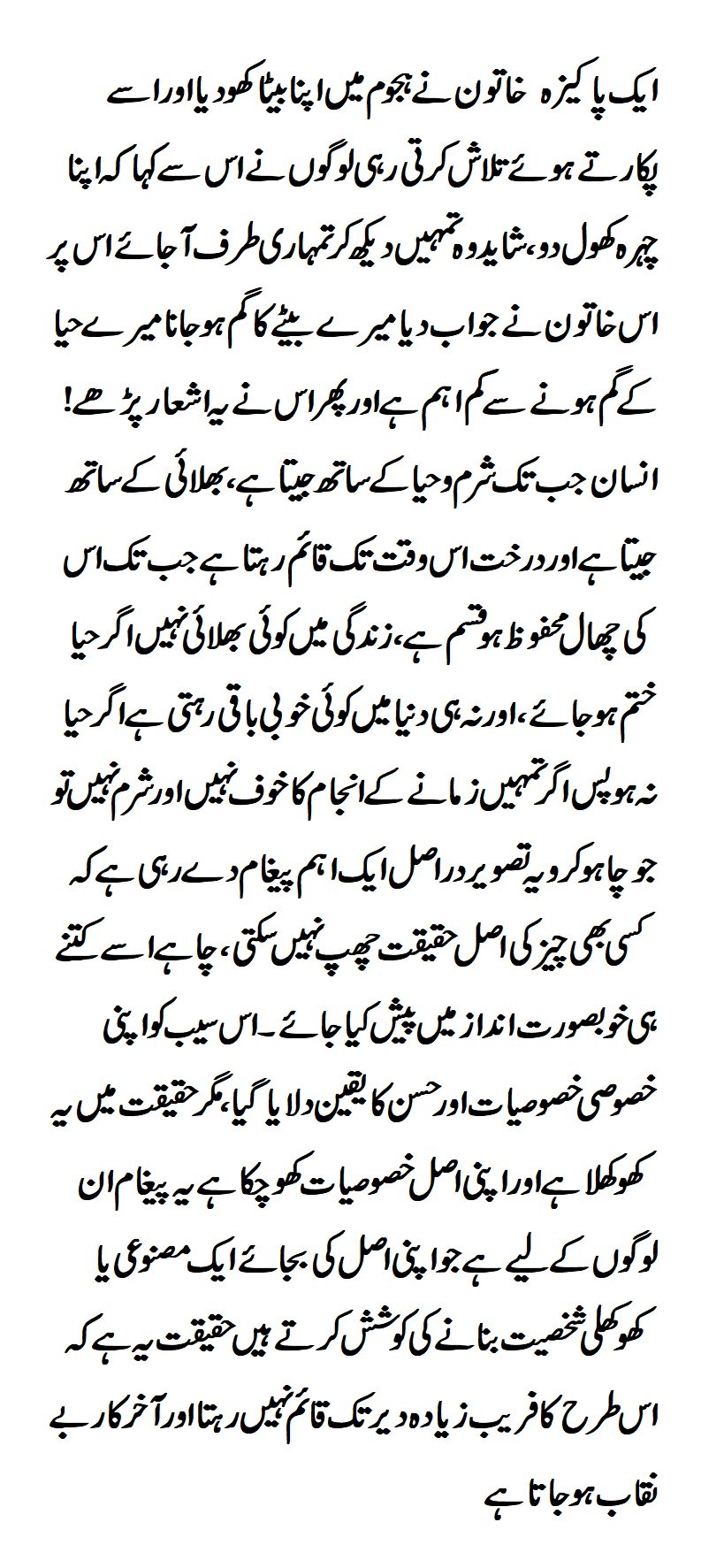The word Jihad is derived from the verb jahada which means: “he exerted himself”. Thus literally, Jihad means exertion, striving; but in juridico-religious sense, it signifies the exertion of one’s power to the utmost of one’s capacity in the cause of Allah. This is why the word Jihad has been used as the antonym to the word Qu,ud (sitting) in the Holy Qur’an (iv. 95).
Thus Jihad in Islam is not an act of violence directed indiscriminately against the non-Muslims; it is the name given to an all-round struggle which a Muslim should launch against evil in whatever form or shape it appears. Qital fi sabilillah (fighting in the way of Allah) is only one aspect of Jihad. Even this qital in Islam is not an act of mad brutality. It has its material and moral functions, i.e. self-preservation and the preservation of the moral order in the world.
The verdict of all religious and ethical philosophies-ancient and modern-justify war on moral grounds. When one nation is assailted by the ambitions and cupidity of another, the doctrine of non-resistance is anti-social, as it involves non-assertion, not only of one’s own rights, but of those of others who need protection against the forces of tyranny and oppression.
A Muslim is saddled with the responsibilities to protect himself and all those who seek his protection. He cannot afford to abandon the defenceless people, old man, women and children to privation, suffering and moral peril. Fighting in Islam, therefore, represents in Islamic Law what is known among Western jurists as “just war”.
The very first revelation in which the permission to wage war against the forces of evil sums up the aims and objects of qital in Islam:
“Permitted’are those who are fought against, because they have been oppressed. and verily God is more Powerful for their aid. Those who have been driven from their homes unjustly only because they said: ‘Our Lord is Allah,’ for had it not been for ‘Allah’s repelling someone by means of others, cloisters and churches and mosques, wherein the name of Allah is oft-mentioned, would assuredly have been pulled down. Verily Allah helps one who helps Him. Lo! Allah is Strong. Almighty” (xxii. 39.41).
These verses eloquently speak of ‘the fact that it is neither for the acquisition of territory nor for the love of power and distinction that the Muslims have been permitted to raise arms against the enemy. They were allowed to do so because their very existence had been made difficult by the high-handedness of the Meccans. The Holy Qur’an has elucidated this point in the following verse:

“And what reason have you not to fight in the way of Allah and for the oppressed among men and women and children who say: Our Lord ! take us forth from the town whereof the people are oppressors and grant us from Thee a friend and grant us from Thee a helper” (iv. 75).
The war in Islam is waged with a view to securing liberty and freedom for those who are groaning under the oppression of heartless tyrants. It is the bounden duty of the Muslims to alleviate their sufferings and create for them an atmosphere of peace and security.
Then in the succeeding verse a distinction is also drawn between two types of war: one which is fought for the sake of Allah and the other which is waged for evil ends:
” Those who believe fight in the way of Allah and those who disbelieve fight in the way of devil. So fight against the friends of Satan; verily weak indeed is the strategy of the devil” (iv. 76).
It has been made clear that those people who fight for self-glorification or for the exploitation of the weak are in fact friends of the devil; wheres those who raise arms to curb tyranny and aggression, to eradicate evil from the human society, fight in the way of Allah. Mere fighting is not, therefore, Jihad in Islam; it is the noble objective alone which makes it a sacred pursuit like devotion and prayer. It is narrated on the authority of Abu Musa Ash’ari that once a man went to the Holy Prophet (may peace be upon him) and said: One man fights for the sake of spoils of war, the second one fights for fame and glory and the third to display his courage and skill; which among them is the fighter for the cause of Allah ? Upon this the Holy Prophet (may peace be upon him) replied: He who fights with the sole objective that the word of Allah should become supreme is a Mujahid in the cause of the Lord.
A Mujahid is thus a noble person who offers his life for the achievement of lofty ends. He is actuated by human considerations lifts arms not under the impulse of fury and revenge, but with will, fore-thought, tenacity and fellow-feeling, and his conduct bears the imprint of human intellect, human sympathy and sense of justice.
The Holy Qur’an has explained this point in Sura Anfal in these words:
“O you who believe, when you meet an enemy, be firm, and remember Allah much, that you may be successful. And obey Allah and His Apostle. And fall with no disputes, lest ye falter and your strength fail; but be steadfast! For Allah is with those who patiently persevere. Be not as those who came forth from their dwellings boastfully. And to be seen of men and debar (men) from the way of Allah. And Allah encompasses what they do” (viii. 45-46).
Here the Muslims have been exhorted to observe five principles of war: